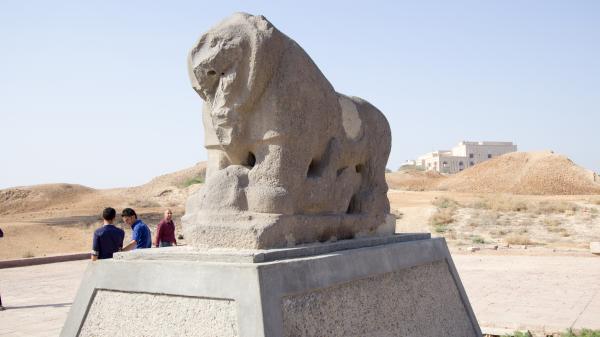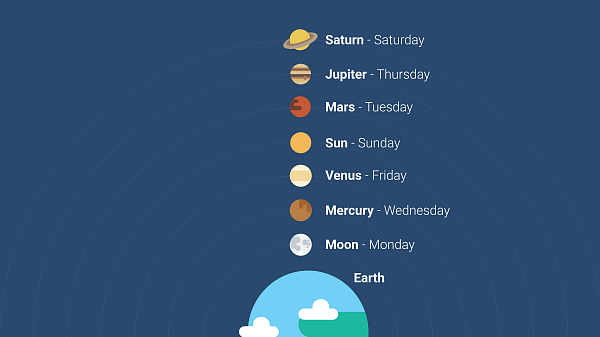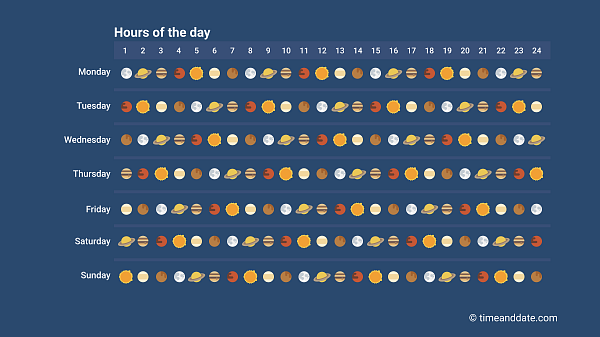Why Does a Week Have 7 Days?
It's Monday and you are looking forward to the weekend. Why do you have to wait 5 days until Saturday? And how come the day after Monday is Tuesday and not, say, Sunday? You have an ancient people in modern-day Iraq to thank.

The lion of Babylon statue in Iraq.
©iStockphoto.com/rasoulali
A Week for Each Moon Phase
The reason why we organize our lives around a 7-day week is, quite literally, above our heads. Like many other calendars, today's Gregorian calendar is ultimately based on the phases of the Moon. It takes the Moon around 29.5 days to cycle through all Moon phases.
For everyday purposes, this is a fairly long and impractical time span, so it makes sense to break it down into smaller segments.
Enter the Babylonians. This ancient society, who lived in Mesopotamia in what is now Iraq, rounded the Moon cycle down to 28 days and divided this time span into 4 periods of 7 days each, using leap days to stay in sync with the Moon phases in the long run.
This 7-day structure is also believed to have ultimately informed a number of popular creation myths, such as the Book of Genesis in the Hebrew and Christian Bibles, which states that God created the world in seven days: six days of work followed by one day of rest.
Leap days in our modern calendar
7 Planets, 7 Days
Avid astronomers and astrologers, the Babylonians developed a kind of horoscope around 500 BCE where each day of the week was assigned to one of the classical planets – the seven non-fixed celestial bodies visible to the naked eye. These are the Sun, the Moon, Mars, Mercury, Jupiter, Venus, and Saturn.
Some historical sources claim that the connection between the days of the week and the classical planets was introduced later by the ancient Greeks.
Find the planets in the night sky
Roman Gods Named Days of the Week
However, historians generally agree that it was the Romans who, a few hundred years later, added many features of the modern 7-day week by adapting the Babylonian system to their world view.
From around the 1st century BCE, they introduced a system where each day was named after one of their pagan gods, each of whom was associated with one of the classical planets. For example, Saturday was dies Saturni, the day of Saturn.
In most Latin-based languages, the names of the weekdays still reveal this connection to the classical planets. However, in many cases, the Roman deities have been replaced by their Norse or Germanic equivalents.
Read More About Each Day of the Week
Monday | Tuesday | Wednesday | Thursday | Friday | Saturday | Sunday
The Order of the Weekdays
Like the modern names of the weekdays, their order within a week has its roots in ancient Rome. The Romans observed the speed at which the classical planets crossed the sky and concluded that the fastest object must have the shortest distance to the Earth, while the slowest object was believed to be farthest away.
What is the actual distance to the planets?
How far is the Moon from Earth?
This resulted in the following order, from greatest to shortest assumed distance from Earth, displayed here with the associated day of the week:


The classical planets and their perceived distance from Earth, with associated days of the week.
- Saturn (Saturday)
- Jupiter (Thursday)
- Mars (Tuesday)
- Sun (Sunday)
- Venus (Friday)
- Mercury (Wednesday)
- Moon (Monday)
What is the first day of the week?
Planetary Hours
The ancient Romans also believed that each hour of the day was governed by one of the deities associated with the celestial bodies. According to this planetary hours system, the 1st hour of the 1st day of the week was thought to be governed by the Moon. Following the above order for each consecutive hour, the 2nd hour was steered by Saturn, the 3rd hour by Jupiter, and so on.
By applying this pattern to all 168 hours of the week (see image), the Romans associated the 1st hour of each weekday with following celestial bodies:


Roman planetary hours.
- Day 1: Moon (Monday)
- Day 2: Mars (Tuesday)
- Day 3: Mercury (Wednesday)
- Day 4: Jupiter (Thursday)
- Day 5: Venus (Friday)
- Day 6: Saturn (Saturday)
- Day 7: Sun (Sunday)
This corresponds to the order of today's 7-day week.